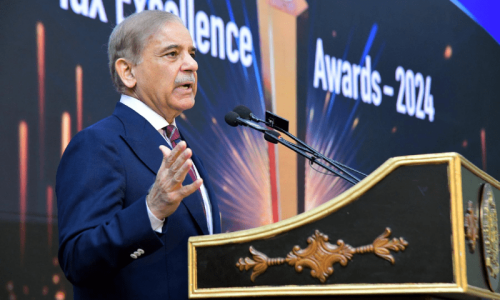Inflation in Pakistan is expected to hover between 22.5 per cent and 23.5pc in March and to further ease in April, the finance ministry said on Friday in its monthly economic update.
The country has been struggling with high inflation and stunted growth for over a year, and in 2023 narrowly staved off default with a last-gasp, short-term International Monetary Fund (IMF) bailout programme.
The ministry’s report said the March inflation outlook was moderate despite a hike in fuel prices and the influence of the month of Ramazan, a traditional time for bulk buying by consumers and a spike in demand.
It also cited the high base effect for falling inflation numbers. In February, monthly inflation was recorded at 23.1pc, the lowest since June 2022.
Inflation had hovered around 30pc for over a year and hit a monthly high of 38pc in 2023.
The report projected that inflation would ease gradually in April to between 21-22pc, saying headline inflation would moderate in the last quarter of the financial year 2024, which ends in June, on account of favourable domestic and global factors.
The economy shrank by 0.17pc in the last financial year, but the report said that there were signals of growth prospects in the current year on the back of strong expansion in the agriculture sector.
The report added that a sustainable economic recovery required continued fiscal consolidation and a flow of foreign investment and remittances to meet external financing needs.
The government has indicated that it will approach the IMF again shortly for a longer-term programme after reaching a staff-level agreement for the second and final review of its nine-month, $3bn programme earlier this month.















































Dear visitor, the comments section is undergoing an overhaul and will return soon.